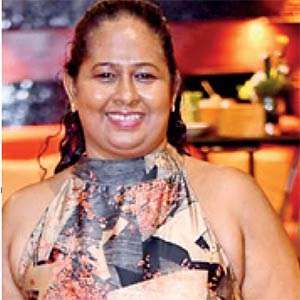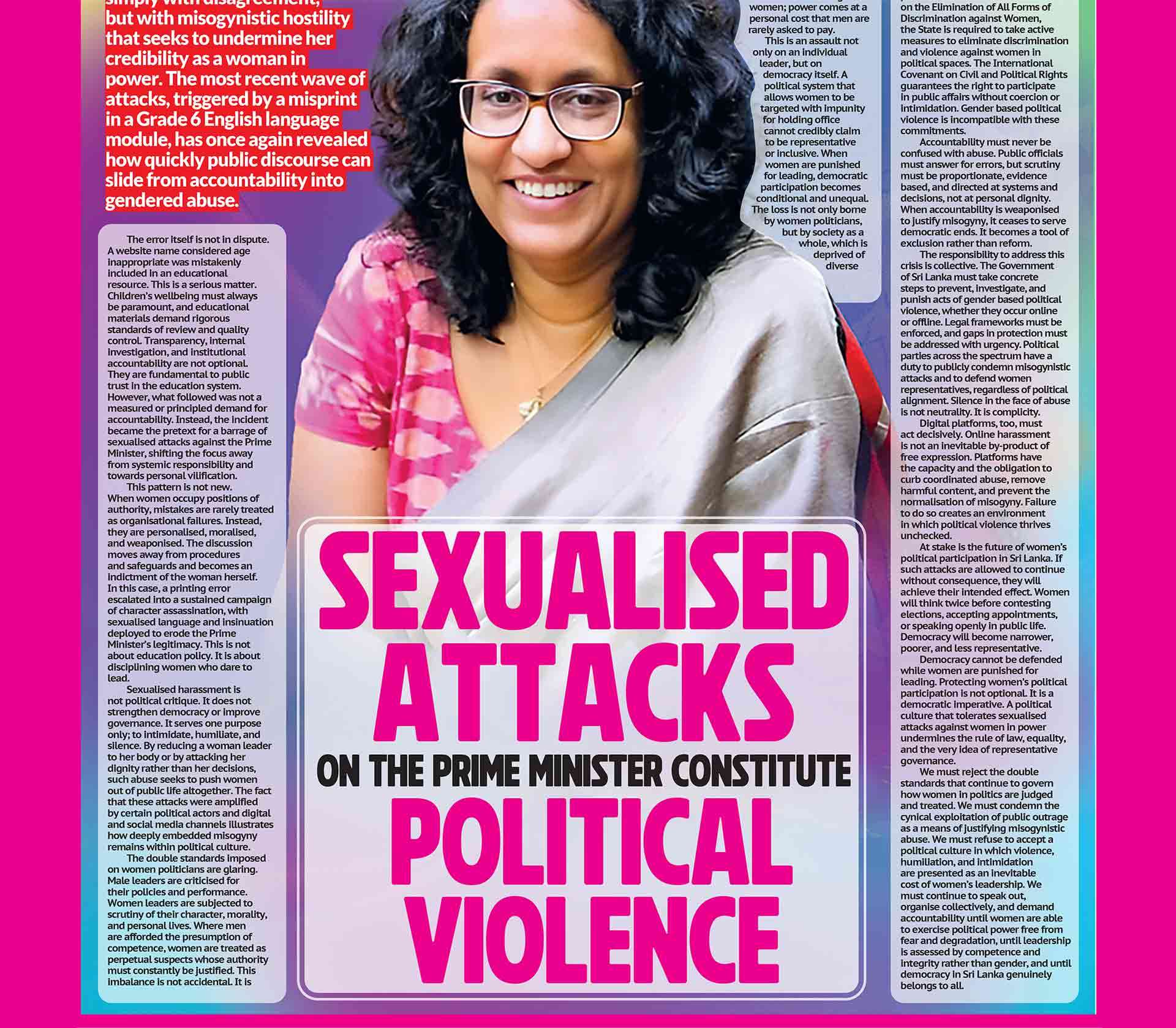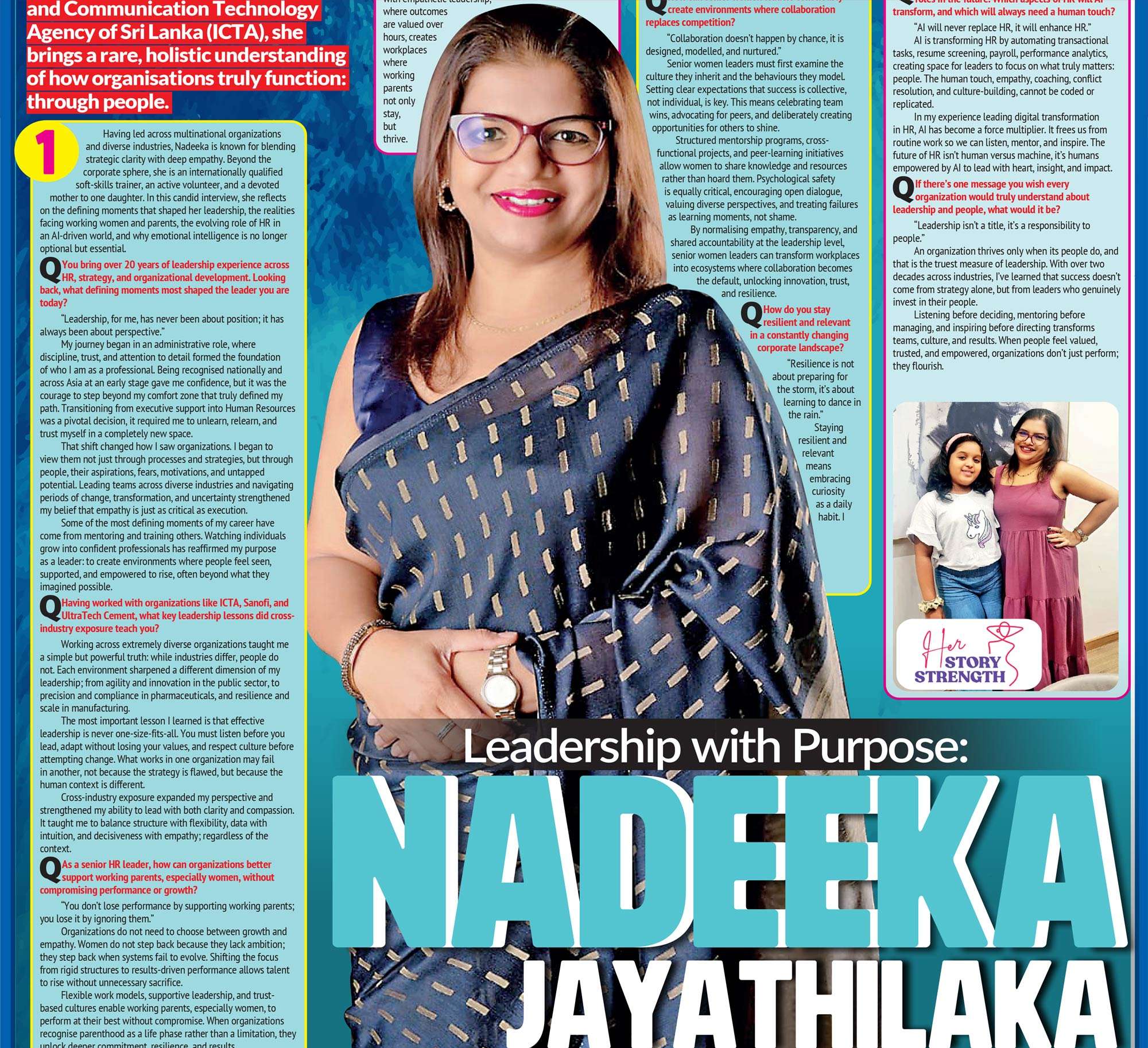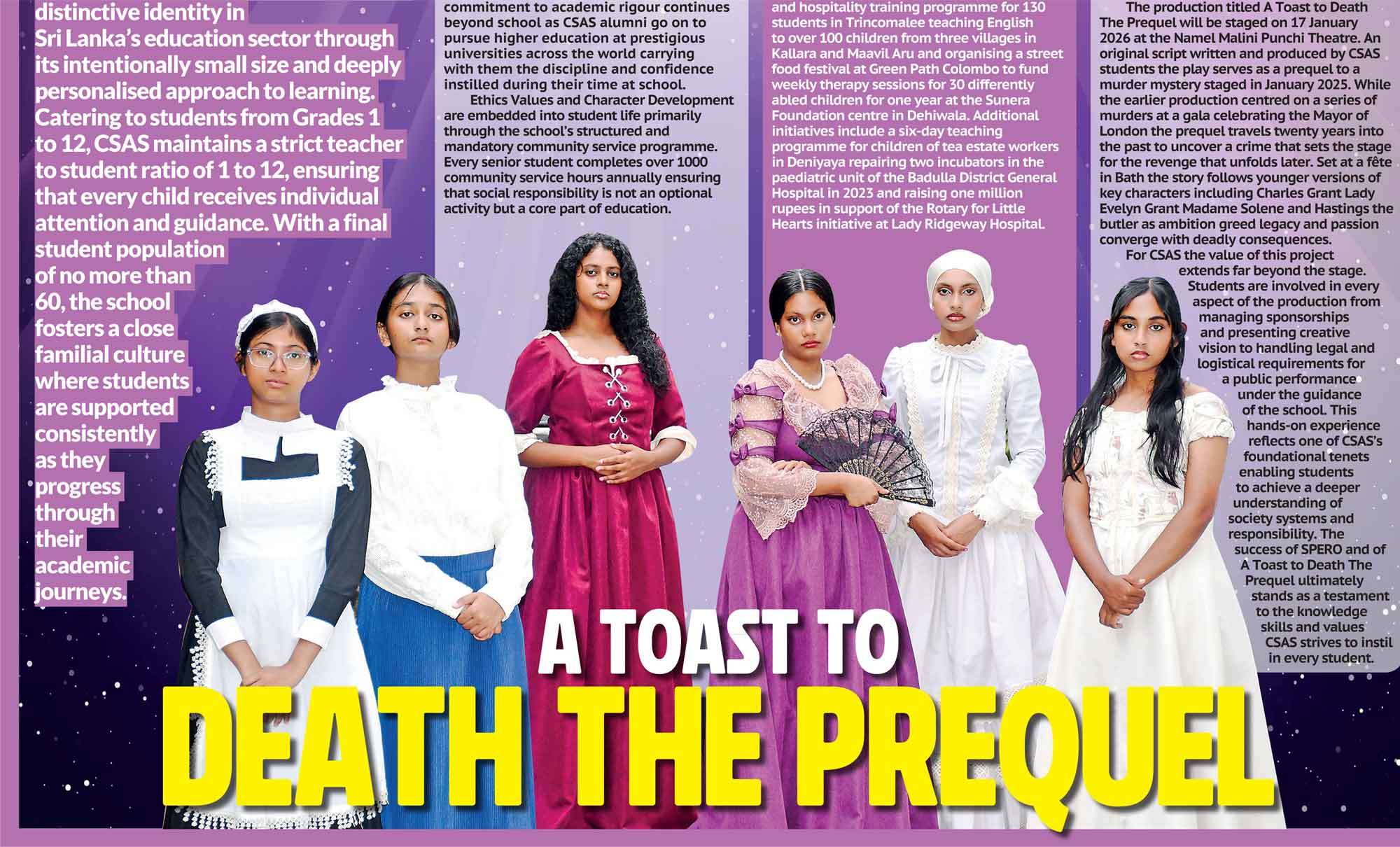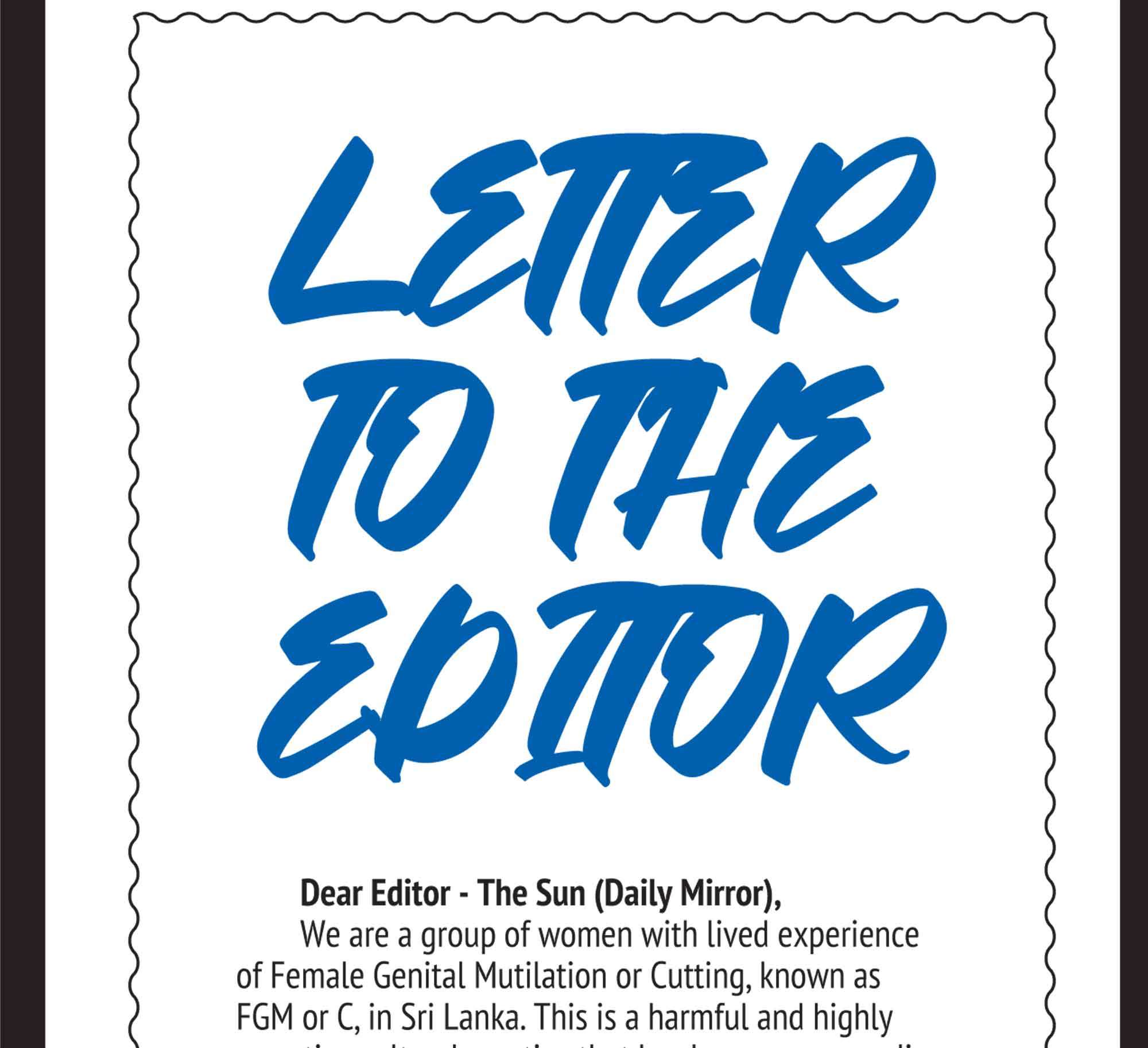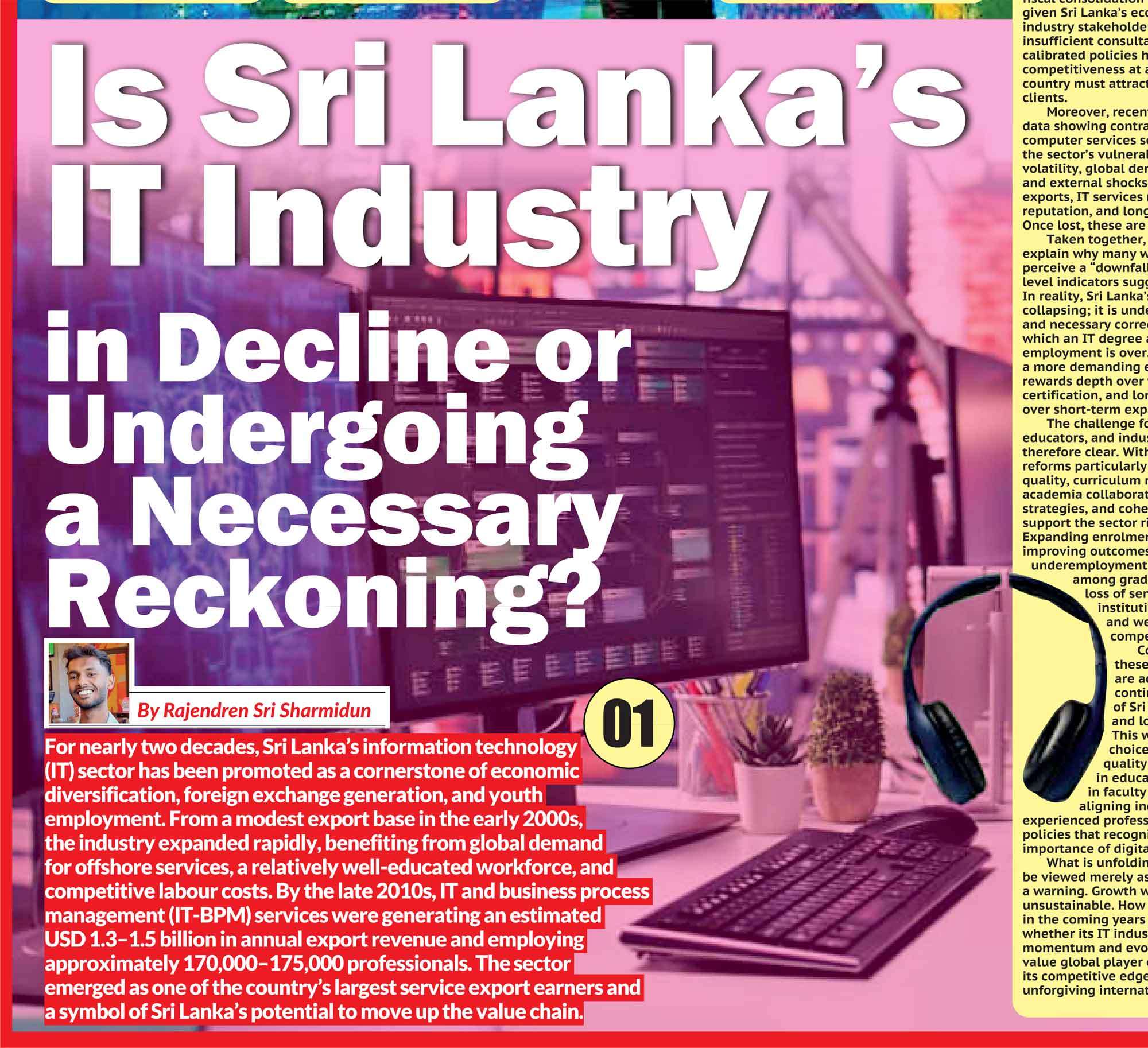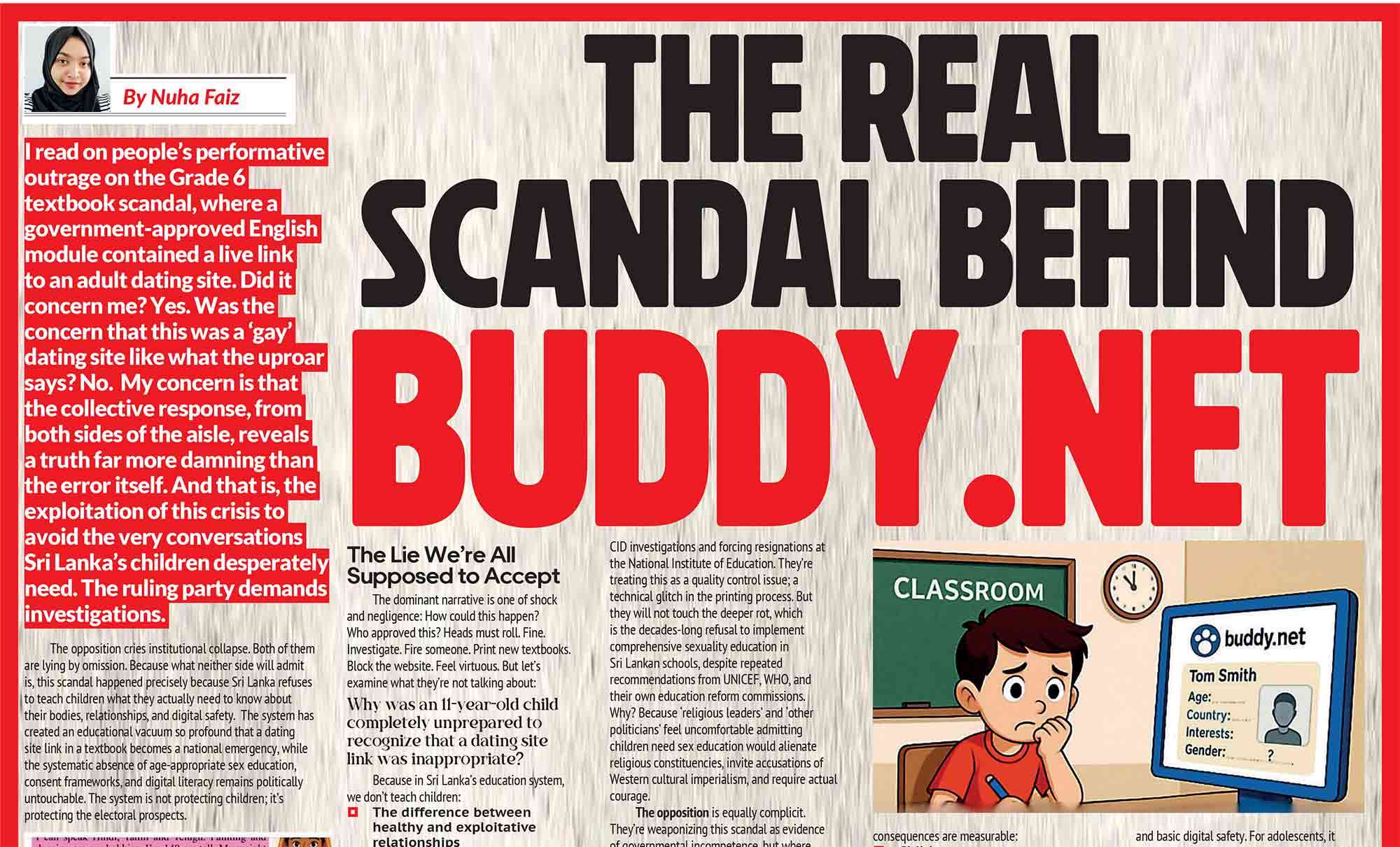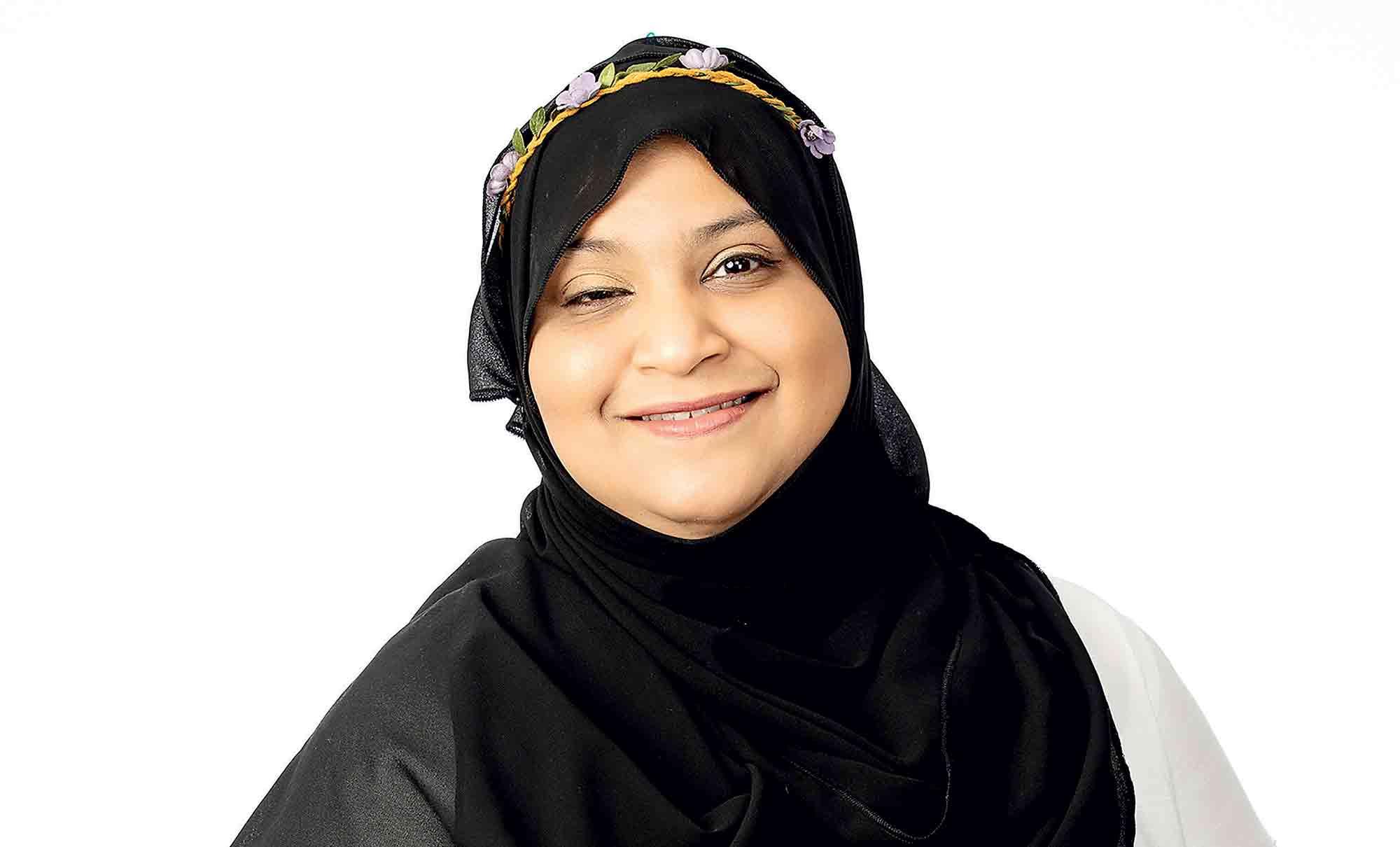
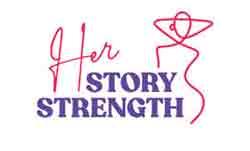 Education is often spoken of as the bedrock of society, but few live that philosophy as fully as Zaynab Zafran. More than an educator, she is a trainer, mentor, and advocate dedicated to transforming the way children learn and how teachers teach. With over a decade of experience across Sri Lanka and the UAE, she has guided educators, designed innovative curricula, and introduced pioneering strategies such as flipped classrooms and growth mindset learning. Today, as Founder / Director of EduMentor360: An Education Consultancy and Former Head of Academic Standards and Quality Assurance at Jade International School, Colombo, Zafran continues to raise the bar for schools and teachers while balancing her most important role as mother to two daughters. Passionate about empowering educators and inspiring young minds, she champions the idea that education must move beyond textbooks to unlock the true potential of every child.
Education is often spoken of as the bedrock of society, but few live that philosophy as fully as Zaynab Zafran. More than an educator, she is a trainer, mentor, and advocate dedicated to transforming the way children learn and how teachers teach. With over a decade of experience across Sri Lanka and the UAE, she has guided educators, designed innovative curricula, and introduced pioneering strategies such as flipped classrooms and growth mindset learning. Today, as Founder / Director of EduMentor360: An Education Consultancy and Former Head of Academic Standards and Quality Assurance at Jade International School, Colombo, Zafran continues to raise the bar for schools and teachers while balancing her most important role as mother to two daughters. Passionate about empowering educators and inspiring young minds, she champions the idea that education must move beyond textbooks to unlock the true potential of every child.
Q What inspired you to pursue a career in education and training, particularly focusing on early childhood and primary education?
From as early as I can remember, I was fascinated by the power of teaching. The idea that a teacher could shape a child’s life, much like clay in the hands of a sculptor, always struck me as extraordinary. Early childhood and primary years are the foundation of human development; they are when values, social cues, and cognitive skills take root. What is absorbed in those formative years often becomes the blueprint of adulthood. I chose this field because I wanted to be part of that foundation. For me, shaping young minds is not just a profession, it is a responsibility to nurture future societies.
Q You’ve worked across Sri Lanka and the UAE: how have these different environments shaped your teaching and training philosophy?
My years in the UAE were transformational. I had to completely unlearn and relearn how I looked at teaching. Exposure to international schools and global best practices introduced me to advanced techniques like blended learning, flipped classrooms, and data-driven teaching. Those 12 years shaped my professional identity and gave me a global perspective. At the same time, working in Sri Lanka grounded me in reality. I saw firsthand the disparities between local and international systems, differences in resources, teacher training, and even student expectations. That contrast made me passionate about bridging the gaps.
My philosophy today is really a blend of both: integrating global standards into local contexts while never losing sight of the cultural and social fabric of Sri Lankan classrooms.
Q As someone specialized in curriculum development, what do you think schools often overlook when designing effective lesson plans?
One of the biggest gaps is the assumption that education is “one size fits all.” Learners come with diverse profiles, some are visual, some are kinesthetic, some thrive on inquiry. Yet lesson plans often follow rigid templates, leaving many children behind. Another oversight is the failure to integrate life skills, creativity, and emotional intelligence. We sometimes reduce education to academic milestones when, in reality, children need to learn resilience, empathy, and problem-solving. A truly effective curriculum must prepare them not just to pass exams but to navigate life with adaptability and confidence. That is the difference between producing students who can recall facts and nurturing citizens who can think critically and contribute meaningfully to society.
Q You are known for your work on growth mindset strategies. How do you practically instill a growth mindset in both teachers and students?
The heart of growth mindset work lies in shifting both language and perspective. With students, I encourage reflection journals, peer feedback, and the power of the word “yet.” For example: “You haven’t mastered this yet.” That single word reframes failure as a step in the learning journey rather than a dead end. With teachers, I create coaching circles where challenges can be shared openly, without judgment. Mistakes are reframed as opportunities to learn. Over time, this approach reshapes the culture of the classroom. Both teachers and students begin to see obstacles as steppingstones. The effect is profound: less fear of failure, more curiosity, and greater perseverance.
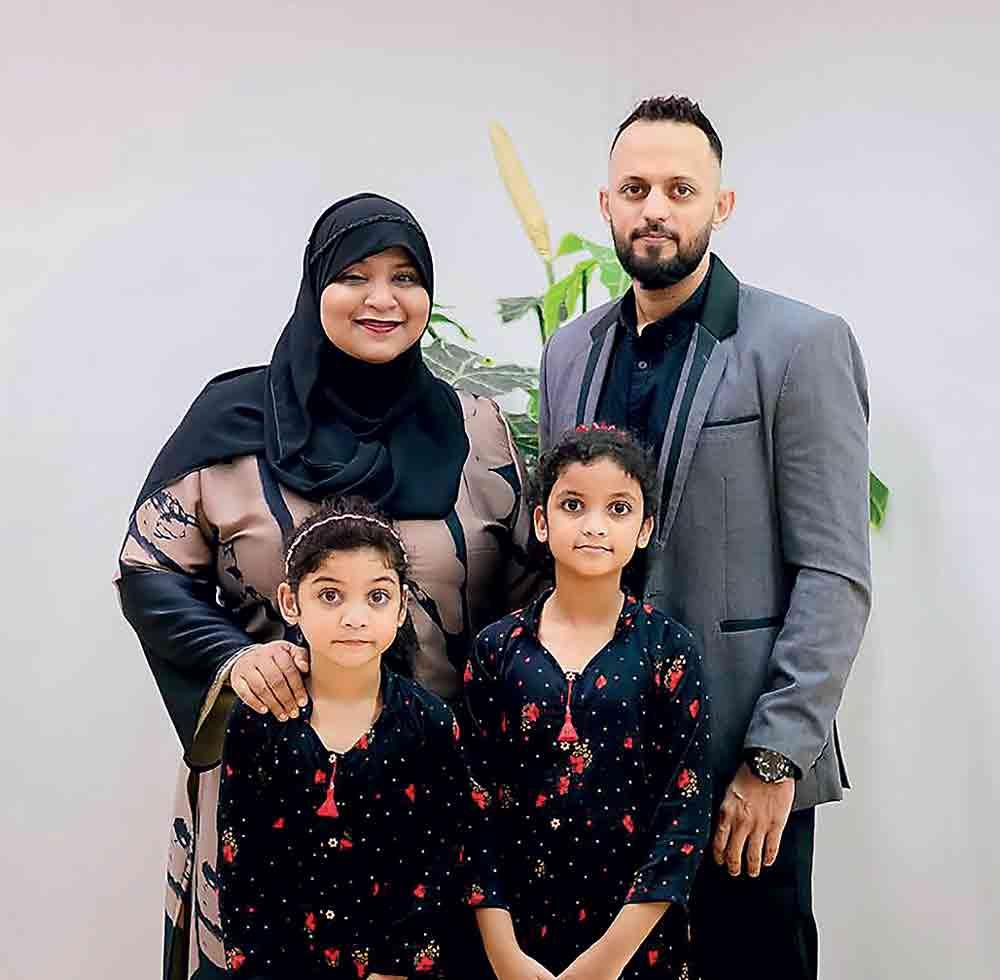
Q You’ve trained educators on flipped classrooms and 21st-century learning strategies. How receptive have teachers been to these methods, and what outcomes have you observed?
At first, there is always resistance, change is uncomfortable. Many teachers worry about losing control of the classroom or about increased workload. But once they see the impact, they often become the strongest advocates. With flipped classrooms, I’ve noticed quieter students flourish. They come prepared for discussions because they’ve had the chance to explore material at home first. Classrooms become more interactive and less teacher-centered, which reduces burnout. The results speak for themselves: higher engagement, improved collaboration, stronger critical thinking, and a genuine sense of ownership among students. These strategies don’t just improve academic outcomes; they prepare learners for the real world.
Q Having completed the SLITAD Certified Trainer program, how has that credential enhanced your approach as a professional trainer?
The SLITAD credential gave me credibility in Sri Lanka’s professional training landscape. More importantly, it refined my methodology. I shifted from delivering content to creating transformative learning experiences. The program reinforced the importance of measurable outcomes. Every training session I now design has clear goals, whether it’s for school leaders, teachers, or parents. It also taught me to adapt my delivery style to different audiences. Above all, it reaffirmed my belief that training is not about transferring information but about enabling transformation. That is what leaves a lasting impact.
Q As a mother of two daughters, how do you personally look at education for girls in Sri Lanka?
For me, education for girls is one of the most powerful investments a nation can make. Sri Lanka has made progress in access, but empowerment requires more than academic achievement. Girls must be given opportunities to build leadership, digital literacy, and entrepreneurial skills. As a mother, I want my daughters to view education as a platform to dream bigger. I don’t want them to see academic success as the end of the road, but rather as the launchpad to greater ambitions. Education must give girls the courage to chart their own pathways, not just follow the ones prescribed by society.
Q Do you think girls in Sri Lanka face unique challenges when it comes to accessing quality education and leadership opportunities?
Yes, very much so. The divide in quality between local and international education is significant, and many girls in rural areas are deprived of exposure to technology, extracurricular activities, or global perspectives. Beyond academics, societal expectations also play a major role. I’ve seen brilliant girls excel academically yet hesitate to take up leadership roles due to cultural conditioning. Breaking this cycle requires deliberate mentorship, visible role models, and systemic changes in how we view girls’ potential. We must move towards a society where girls’ voices are not only heard but valued, celebrated, and elevated.
Q You’ve conducted workshops with Oxford University Press and designed programs for schools. Which project are you most proud of?
Two projects stand out. The first is developing a comprehensive early year reading framework in Dubai. It wasn’t only about literacy; it was about inclusivity. The framework intentionally included children of determination, ensuring that reading was a shared experience for all learners, regardless of ability.
That sense of equity still makes me proud. The second is my School Improvement Framework, which I like to call my “signature work.” It’s built on the principle that happy teachers create thriving classrooms. By balancing teacher well-being with student success, the framework creates sustainable, long-term improvement. For me, it embodies my belief that quality education begins by empowering the educators who stand at the front of the classroom every day.
Q Looking ahead, what shifts should we prepare for in education?
The most significant shift is undoubtedly technology, particularly artificial intelligence. But I don’t believe technology will replace teachers. Instead, it will empower them. AI can take over administrative burdens, personalize learning, and give teachers more space to focus on creativity, empathy, and innovation. The challenge lies in ensuring educators are not only equipped to use these tools but also prepared to guide students in engaging with them critically and ethically. The future will be a hybrid model, human connection at the core, with technology as the enabler. If we get this balance right, the next generation of learners will be better prepared for a rapidly changing world.

- Teaching or training; what excites you more? Training. My soul truly shines when I train.
- One book every teacher should read? Atomic Habits by James Clear. It shows how small, consistent changes can transform lives, something every teacher and student can apply.
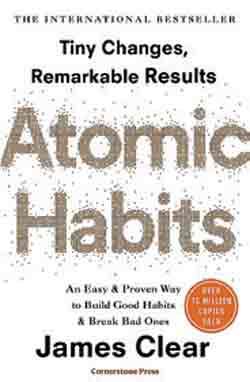
- Biggest myth about education you’d like to break? That education is one-size-fits-all. It never has been and never will be.
- Most inspiring teacher you ever had? Mrs. Sulaiman, my Human Biology teacher during O/Ls. A remarkable woman who profoundly shaped my journey as an educator, trainer, and coach.
- One word your students would use to describe you? Kind.
- UAE or Sri Lanka – where did you learn the most about teaching? The UAE.
- Tea or coffee while lesson planning?Tea, always.

- If not an educator, what would you be? An artist.
- A skill you want your daughters to master? Leadership and adaptability, so they can thrive in any environment and confidently shape their own paths.
- Your proudest professional achievement so far? Serving as Head of Training, Development and Quality Assurance in Dubai alongside the Ministry of Education, where I trained and mentored over 500 teachers.

